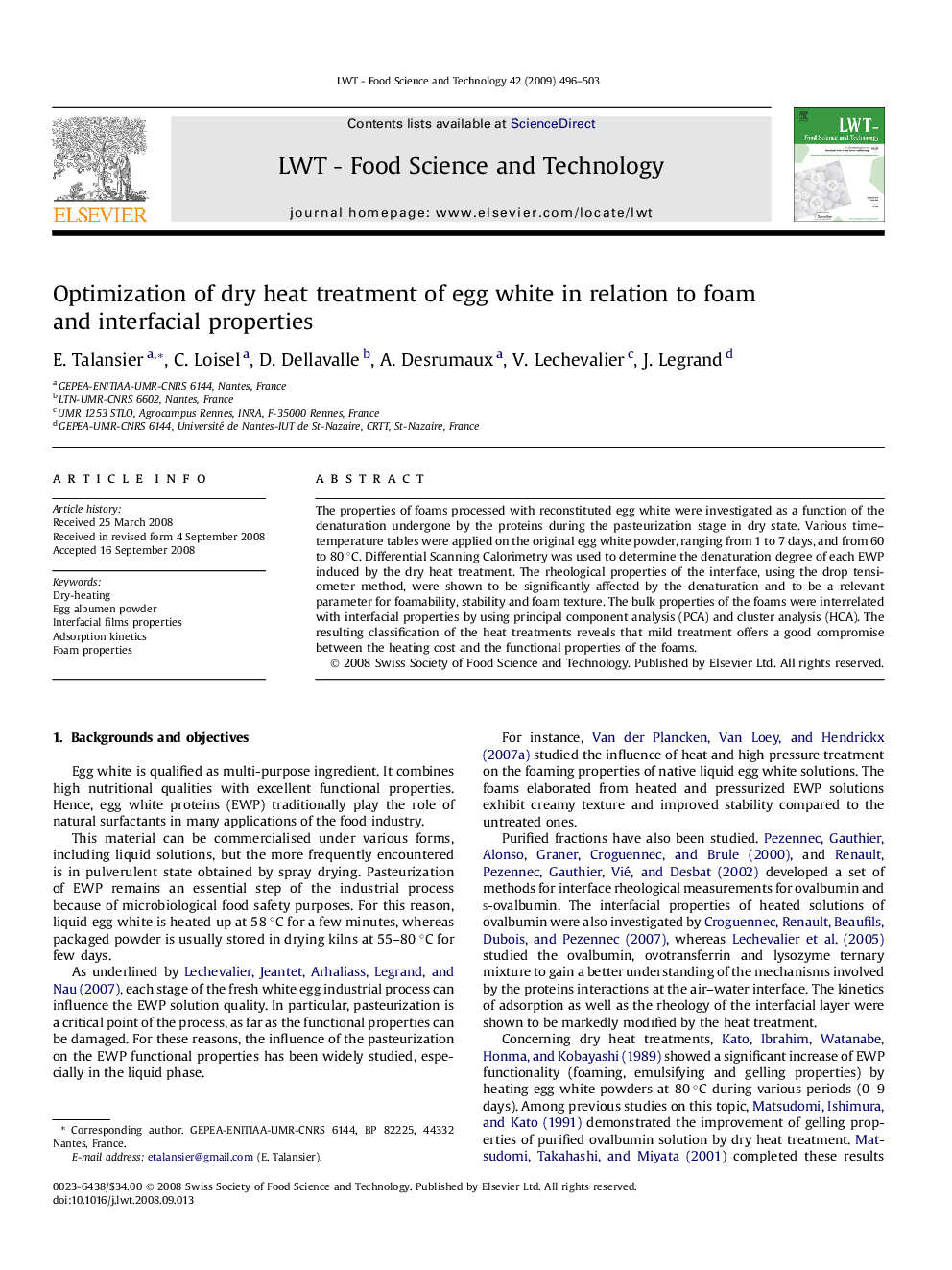| Article ID | Journal | Published Year | Pages | File Type |
|---|---|---|---|---|
| 4564541 | LWT - Food Science and Technology | 2009 | 8 Pages |
Abstract
The properties of foams processed with reconstituted egg white were investigated as a function of the denaturation undergone by the proteins during the pasteurization stage in dry state. Various time-temperature tables were applied on the original egg white powder, ranging from 1 to 7 days, and from 60 to 80 °C. Differential Scanning Calorimetry was used to determine the denaturation degree of each EWP induced by the dry heat treatment. The rheological properties of the interface, using the drop tensiometer method, were shown to be significantly affected by the denaturation and to be a relevant parameter for foamability, stability and foam texture. The bulk properties of the foams were interrelated with interfacial properties by using principal component analysis (PCA) and cluster analysis (HCA). The resulting classification of the heat treatments reveals that mild treatment offers a good compromise between the heating cost and the functional properties of the foams.
Related Topics
Life Sciences
Agricultural and Biological Sciences
Food Science
Authors
E. Talansier, C. Loisel, D. Dellavalle, A. Desrumaux, V. Lechevalier, J. Legrand,
